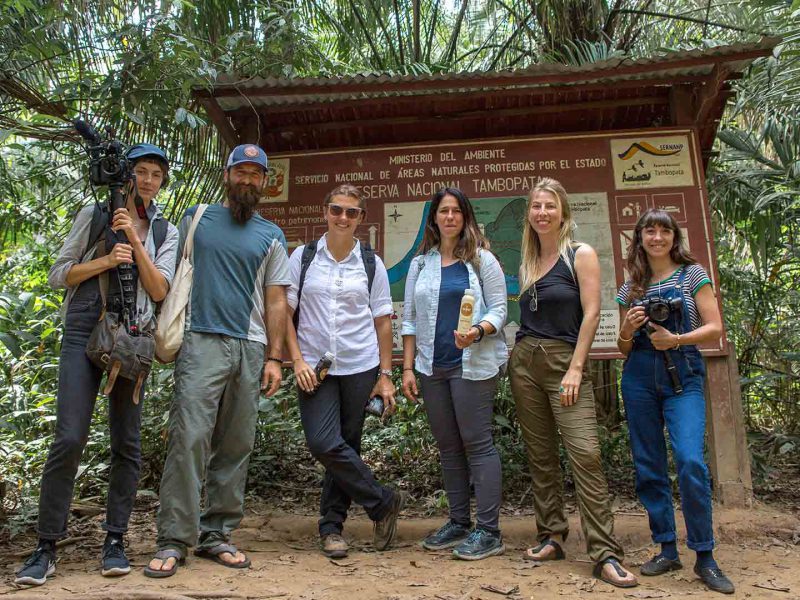Born out of the dream of using business as a force for good, REBBL drinks has leveraged their line of organic, plant-based elixirs to create positive social and environmental change since 2012. REBBL was cofounded by Not For Sale, a non-profit dedicated to eradicating human trafficking and worker exploitation. Through their work in vulnerable communities, the team at Not For Sale realized that, in order to end human trafficking, they needed to address two of its root causes: economic instability and climate change. REBBL uses their impact sourcing model to tackle both of these key issues.
Each REBBL elixir is crafted from sustainably grown, organic ingredients like Peruvian Maca and Madagascar Vanilla. REBBL sources these ingredients from regions in need of economic empowerment and works with suppliers who invest in the well-being of the communities where they operate. They are currently sourcing from over 29 different countries. Through this impact sourcing model, REBBL is able to help create sustainable and dignified livelihoods for these communities, reducing the risk of human trafficking and exploitation. In addition to their sourcing efforts, REBBL donates 2.5% of net sales to support Not For Sale in providing education, healthcare, legal services and job training for survivors of exploitation.
Impact Sourcing:
A Closer Look
In 2018 REBBL launched a new protein elixir: Banana Nut Protein. Crafted using organic Brazil Nuts from the Amazon rainforest, REBBL’s latest product offering gives us a glimpse into how they are using their impact sourcing model for good.
Deforestation
The Amazon rainforest has a tremendous capacity to absorb carbon dioxide from the atmosphere, and its preservation is critical for reversing global warming. REBBL works with a cooperative of indigenous communities to source organic Brazil Nuts from the Madre de Dios region of Peru. Sourcing these wild-harvested Brazil Nuts from old-growth trees of the Amazon creates economic incentive for the local community to protect the rainforest. The economic success of the Brazil Nut staves off growing domestic and international pressures to convert forests into mines, pastures, and plantations.
Agriculture
In a healthy rainforest ecosystem, trees, soil, leaf litter, and other vegetation absorb and hold carbon. Both flora and fauna play multidimensional roles: supporting the water cycle, building healthy soil, protecting habitat and pollinators, and providing for the people who share these landscapes. REBBL works with Brazil Nut suppliers who utilize organic agricultural practices that help regenerate the land. By promoting and preserving the health of these old-growth Brazil Nut trees, the surrounding ecosystem is able to flourish. These mature trees live for hundreds of years and tower up to 130 feet high, creating a canopy layer with complex understories, and providing shelter for biodiversity.
(Anti) Human Trafficking
By ethically sourcing Brazil Nuts from these communities in Peru, REBBL is able to create stable economic opportunity, which uplifts the entire community.



